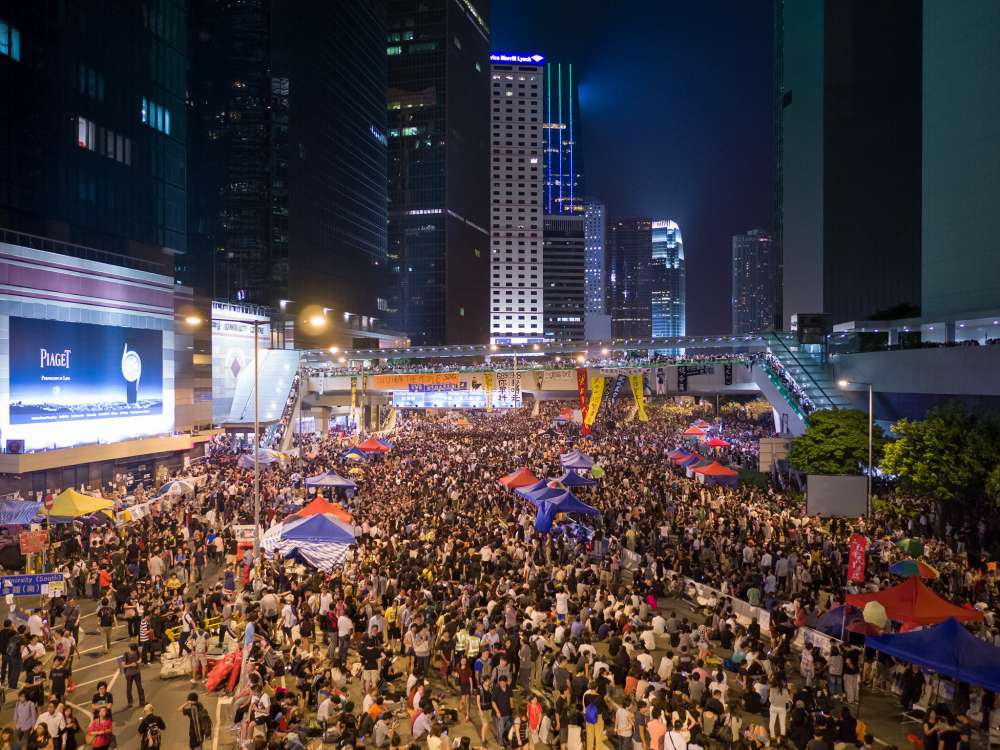Localists Should Fight to Protect Hong Kong’s Autonomy, Not Seek Independence

Political flare-ups between pro- and anti-Beijing supporters have catapulted Hong Kong into the international spotlight. Beijing’s increasing intervention in Hong Kong’s political affairs has led to violent street clashes between the two camps in the city and international condemnations of China.
Instead of calling for independence, Hong Kong localists should focus on maintaining the city’s semi-autonomous status beyond 2047, when China’s political system is slated to swallow Hong Kong’s.
When the UK handed the territory back to China, Hong Kong was allowed – under the “one country, two systems” framework – to keep freedoms not available on the mainland. Beijing’s intervention this month to prevent two democratically elected legislators, Yau Wai-ching and Sixtus “Baggio” Leung Chung-hang, from taking office, after they botched their oath of office, has taken place amid growing resentment against the mainland’s increasing influence and involvement in local affairs. Hong Kong publishers of provocative political books have even been kidnaped and taken to the mainland to be paraded on state television.
At the same time, Hong Kongers are angry about the rising cost of housing and basic commodities, increasing immigration – especially from the mainland – and soaring income inequality. Such frustration has led some Hong Kong people to vote for the pro-independence legislators, protest against Beijing’s interventions, and demand that the central government grant Hong Kong people the power to directly elect the city’s chief executive in 2017.
But Hong Kongers need to be pragmatic. China will never grant independence to Hong Kong, and no matter who is elected chief executive, he or she will ultimately have to answer to Beijing.
The reality is that Hong Kong’s fate has been, and always will be, intricately tied to China. China has become the world’s second-largest economy, and is expected to surpass the US in gross domestic product in several more years. Multinational corporations jockey to gain access to its consumer market – the world’s largest. At the same time, Shanghai now competes with Hong Kong as the country’s financial hub, and Chinese special economic zones are catching up with, and overtaking, the city’s port. Looking ahead, China’s influence and power over Hong Kong is only set to grow.
The next chief executive will be chosen in March 2017, again by an election committee composed of 1,200 members, a majority of whom are viewed as pro-Beijing.
The new breed of young, pro-democracy legislators need to realize that even if many residents identify themselves as “Hong Kong people” before “Chinese,” Hong Kong is still part of China. Many people in Hong Kong admire China’s rapid economic growth over the past two decades and many wish to retain close personal and professional ties with the mainland.
In this context, Hong Kong’s pro-independence leaders should accept that the only viable option to safeguard some semblance of democracy in the long run is to build support around preserving Hong Kong’s autonomous status indefinitely after 2047. This includes getting members of the chief executive’s selection committee on board, especially because many of them are Hong Kong’s elite who depend on the city’s stability and prosperity.
This approach could work because there are also clear benefits for China. Maintaining Hong Kong’s political stability in the long run will be good for China’s economy, its international reputation and for the global economy.
One of the original intentions behind “one country, two systems” was to reassure the international community and the Hong Kong people of the city’s political stability and attractiveness for global commerce.
It worked. The city now provides Chinese companies with access to global capital markets and foreign companies use Hong Kong as a base for investment in China, owing to its stable investment environment, independent judges and fair, transparent courts upholding the rule of law. According to the World Investment Report 2016, published by the United Nations Conference on Trade and Development, Hong Kong ranked second globally in foreign direct investment inflows.
Hong Kong also plays a vital role for China to acquire technological and management expertise. And the Chinese government has tested a range of financial reforms in Hong Kong, including using the city since 2009 as a base for efforts to boost the renminbi’s acceptance as a global currency.
Underpinning all this is the credibility of the “one country, two systems” set-up, which has given international businesses a sense of comfort and safety, making the city’s legal system and capital markets an invaluable platform for which foreign investments – both financial and human – can connect to the mainland. The Chinese leadership should be enlightened to prioritize these benefits over the urge to control every aspect of Hong Kong and govern it like any other Chinese city.
For the first few years after the handover, many were hopeful that Hong Kong would eventually see a more accountable government. This optimism is fading.
Instead of fighting for independence, Hong Kong’s localists should strive to preserve the special administrative region’s autonomy and freedoms for the long term. In doing so, the Hong Kong people will have to tread a fine line between standing up for their right to retain some semblance of autonomy and coping with the reality of a rising and more assertive China’s ever-tighter embrace.
…
This commentary, also available in German, was originally published by South China Morning Post on November 28, 2016.